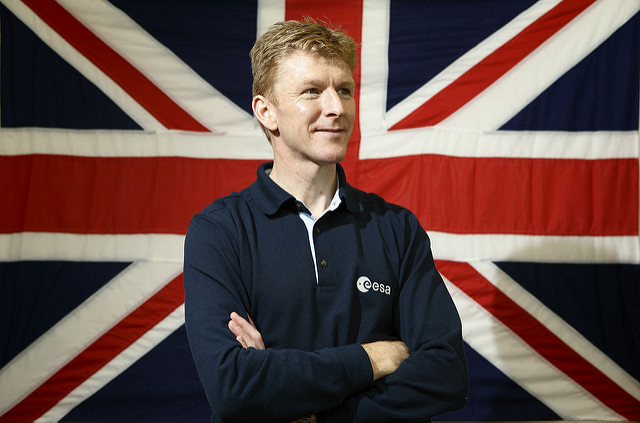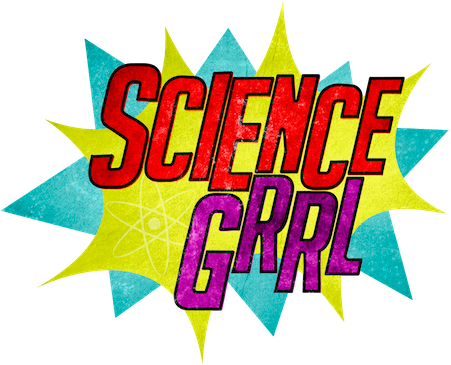Why I Hate Tim Peake (just a bit…)

Tim Peake. He’s British, in case you wondered (Photo: Dept of Business, Innovation and Skills on Flickr)
I have a confession to make. I really hate Tim Peake.
Well actually that’s not strictly true. I’m sure he’s a great guy, and would love to buy him a pint and have a natter when he gets back down to earth. What I mean is, I hate the tired old trope that people use Tim Peake for – the idea that Space is an easy gateway to get people interested in science, that it’s down to a plucky Brit hero with a thirst for exploration, and that one day, if they try hard enough, thousands of kids across the UK could go to space too.
Tim and I know that this isn’t true. So far, there have been 100 crew members on the ISS. They just happen not to have been British. After attending Sandhurst and an exemplary 18 year military career, Tim was trained in Germany, Russia, Italy and the USA by an international team of scientists who trained many of his ISS colleagues before him. He was flown to the ISS in a Russian Soyuz spacecraft, and shares ISS duties with the current crew – two Americans, two Ukrainians and a Russian who work as a team, in harmony with each other, to get the science bits done. The idea of the plucky Brit in space is a vast simplification. And don’t even get me started about how Helen Sharman went to space first.
Science is often quite the opposite of the myths we seem to enjoy. There are very rarely plucky heroes or maverick geniuses, and discoveries that change everything are even more rare. Science happens in teams. Over time. In increments – tiny links and forges in the chain of discovery. This is something science historians have tried to tell us again and again, but they are sidelined because… well, it doesn’t really tell an interesting story, does it? We need to inspire the next generation of scientists, and being an astronaut is more “inspirational” than working in a pharmaceutical lab, or designing efficient renewable energy equipment, or being the person who fixes an MRI scanner when it breaks, or even discovering a few new elements.
I confess I have a similar problem with Ada Lovelace, whose ambassadorial message to women in STEM seems to be “You too can be a great scientist. Erm, if you’re wealthy, move in the same elevated social circles as Babbage, marry an Earl and have an army of servants to look after your children while you work”. I’ve never heard anyone crediting Ada’s social connections, or her children’s nursemaids, her cooks and housemaids, for being part of the team that gave her the time to concentrate. Maybe her scullery maid was a genius, but we’ll never know, because she didn’t have Ada’s opportunity. Don’t get me wrong, Ada’s brilliance is undoubted. But we musn’t forget the people, often considered inconsequental and written out of history, that supported and enabled her.
My first blog for The Guardian, a few years ago now, was on Ada Lovelace Day and celebrated the women who were my childhood inspiration. As a working class kid growing up in the 1970s this was essentially Maggie Philbin and Judith Hann on Tomorrow’s World, and as a working class adult I’m still stunned to be in a position where I write stuff about science and “Proper Scientists” tell me it’s quite good (I’ve even met Maggie Philbin. Twice.). It all still seems weird to me because I spent 17 years cooking fried breakfasts and cleaning toilets in the hospitality industry, before being made redundant and deciding to do a Health Science degree. As I write this, my finals are fast approaching and I’ve applied for a PhD studentship. My hope is that by my 50th birthday, I’ll be able to put “Dr” in front of my name. Better late than never.
But please, whatever you do, don’t tell me I’m an inspiration. It still makes me feel uncomfortable that people say “well done” to me, as if being a white, cis-gendered, middle aged working class mum is the height of diversity that Science can achieve. It’s most definitely not. Opportunity still put me in this position as much as it did Tim or Ada, and I still have a whole team of people who have made what I’m doing possible. I’m not unique or especially clever. I’m an unremarkable mother of two who gets the same bus every morning to the university campus where I sit in the library, typing this. I, too, have a “team”.
The desk I sit at is clean thanks to the janitorial staff, the security guards smile and say hello to me as I come in, and the library staff are super helpful if I have wifi issues or need an obscure paper to cite. I wouldn’t even have considered writing for The Guardian possible without Dr Dean Burnett suggesting it, because Helen Arney didn’t have time that year. My degree would not have happened without the endless patience of my family, the administrative staff and the brilliant tutors who get paid peanuts by the Open University. My application to do a PhD studentship at Stirling University wouldn’t be happening without Lynne, an administrator in the School of Health Science who sent me a random twitter message on the right day (I still owe her a coffee for that). And most of all, throughout my application for postgraduate study I’ve been guided, reassured and generally coddled by my potential supervisor – Professor Mary Wells, of the NMAHP Research Unit, who has never wavered and always shown complete confidence in my ability to do this thing. I’m not saying I have no special qualities whatsoever – I’m pig headed enough not to do what people expect, and I have a steadfast curiosity about people’s health and what makes some less healthy than others. But without the support and encouragement I’ve had, I’d be someone ranting in a newspaper comment section somewhere that only 20 or so other commenters read.
So next time you hear about a lone genius in science, or a new British astronaut, do me a favour. Think about the teachers and training staff who taught them the language and structure of it all, the assistants who collected and analysed all the data to make it possible, the loved ones who were patient with their mental or physical absence… and the person who kept their office clean and brought them cups of tea. Because only a few years ago, that could easily have been me.
